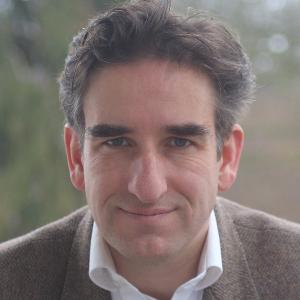ERC Advanced Grant for Prof. Christian Ochsenfeld
1 Aug 2025
Biochemical reaction networks: The European Research Council awards prestigious Advanced Grant to scientist at the Faculty.
1 Aug 2025
Biochemical reaction networks: The European Research Council awards prestigious Advanced Grant to scientist at the Faculty.

© Christian Ochsenfeld
Christian Ochsenfeld is Professor of Theoretical Chemistry in the Faculty of Chemistry and Pharmacy at LMU.
Understanding and controlling molecular and catalytic processes requires comprehensive insights into chemical and biochemical reaction networks. However, decoding these complex mechanisms is anything but trivial. With his project QCexplore (Quantum Chemical Exploration of Reaction Networks: From Origins of Life to De Novo Enzyme Design), Christian Ochsenfeld wants to provide a generally applicable solution to this challenge by developing an autonomous quantum chemical method for exploring reaction networks and a highly efficient, fully automated open-source software framework.
“The starting point is our proof-of-concept approach for a computer-aided hyperreactor, which we presented in 2024,” explains the chemist. By combining reactivity-boosting concepts with rapid, linear-scaling quantum chemical methods, the QCexplore framework facilitates the efficient and reliable exploration of reaction networks under fully controlled and realistic conditions. “The incorporation of novel data mining techniques in conjunction with efficient refinement methods enables us to effectively use and analyze the data to identify relevant reaction pathways.” In this way, QCexplore overcomes traditional manual and error-prone approaches.
The incorporation of novel data mining techniques in conjunction with efficient refinement methods enables us to effectively use and analyze the data to identify relevant reaction pathways.Christian Ochsenfeld
The capability of the framework developed by QCexplore will be demonstrated using the example of key questions concerning the origins of life, such as how essential molecular building blocks are formed and combine to form larger aggregates like strands of RNA. In addition, the project will seek to create a solid foundation for the de novo design of artificial enzymes by precisely identifying the principal steps in catalytic processes, ascertaining the dominant reaction pathways, and pointing out strategies for boosting enzymatic activity and selectivity.